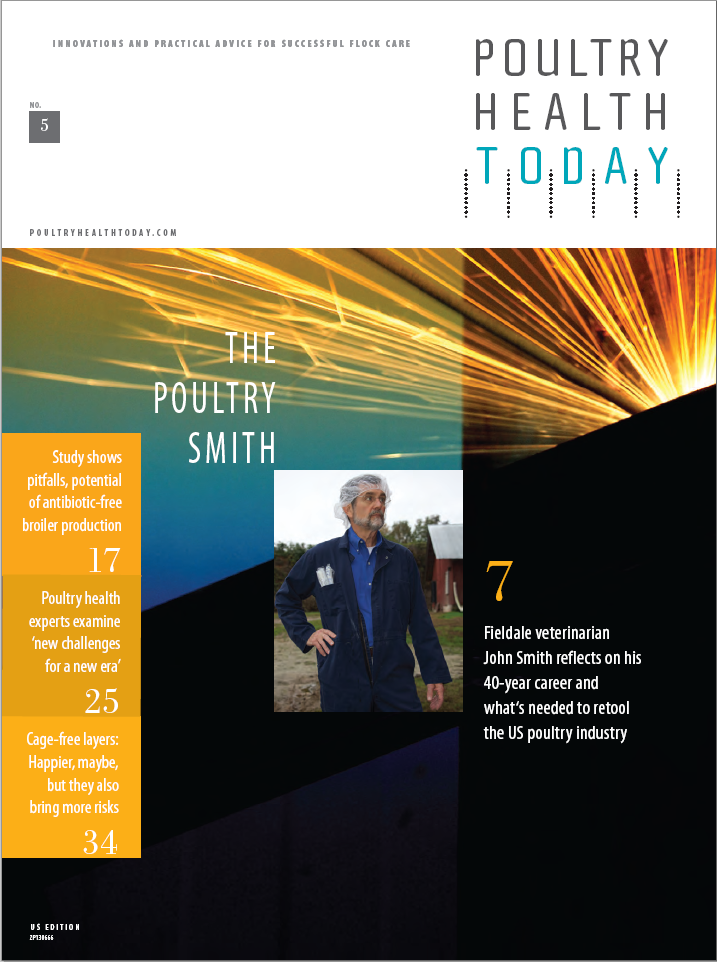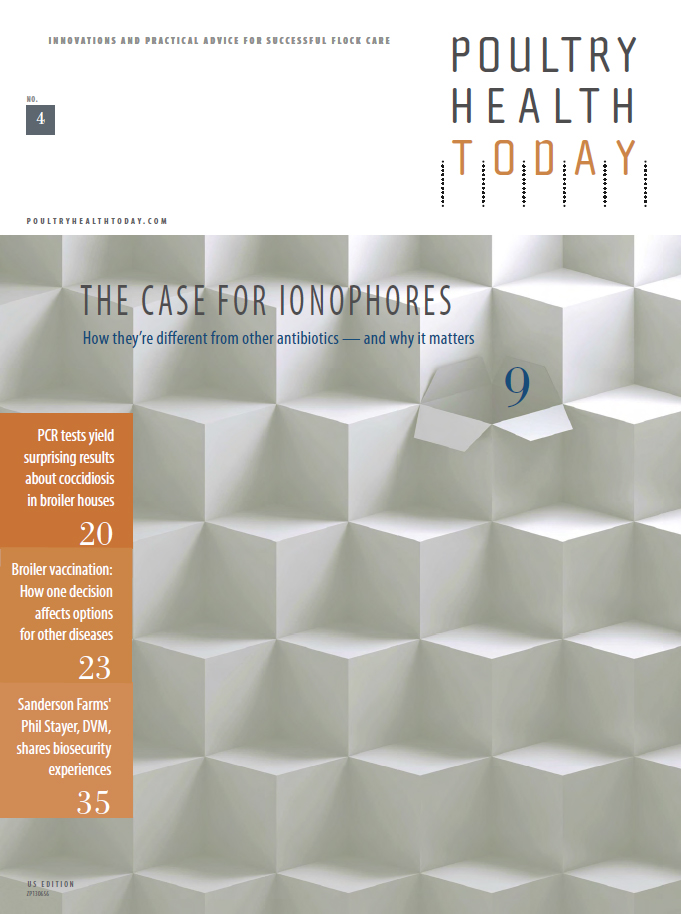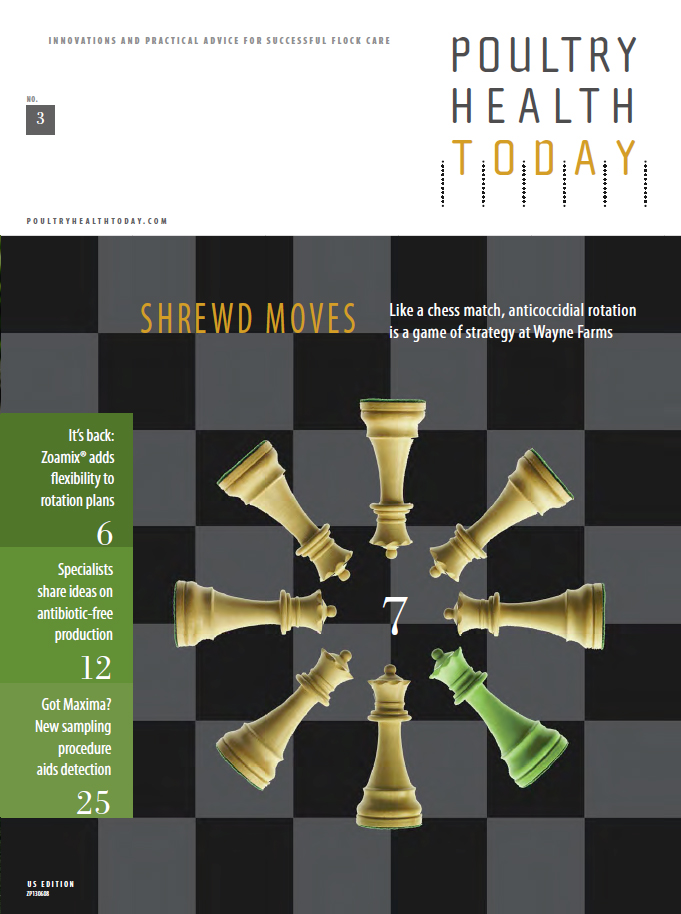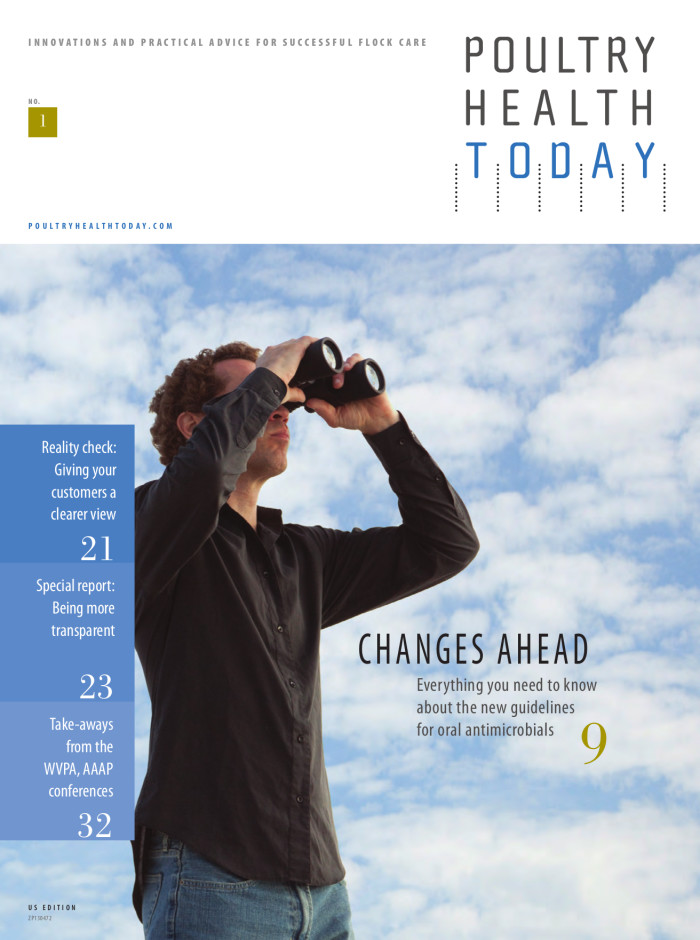

High stocking density predisposes broilers to NE

High stocking density has adverse effects on broiler welfare and intestinal health and predisposes the birds to necrotic enteritis (NE), according to the results of an experiment conducted by researchers from the Aristotle University of Thessaloniki.1
For their study, investigators randomly assigned 240 day-old broilers to one of four groups. Two groups had normal stocking density, defined as 15 birds/square meter (10.7 square feet), and two more groups had high stocking density, defined as 30 birds/square meter.
Researchers challenged one of the normal and one of the high stocking-density groups with a 10-fold oral dose of an attenuated anticococcidal vaccine plus multiple oral inoculations with a strain of Clostridium perfringens. The remaining two groups were not challenged and were used as controls.
The researchers then collected and scored the birds for gross lesions; they also collected intestinal digesta to test for pH and viscosity, and caeca for microbiological analysis.
Investigators found a “significant interaction” between high stocking density and challenge based on their evaluation (p ? 0.05). Compared to unchallenged controls, high stocking density in challenged birds also increased the gross lesion score in the intestines, they reported in the April 2015 issue of Avian Pathology.
1 Tsiouris V, et al. High stocking density as a predisposing factor for necrotic enteritis in broiler chicks. Avian Pathol. 2015 april;44(2):59-66.
More Issues












